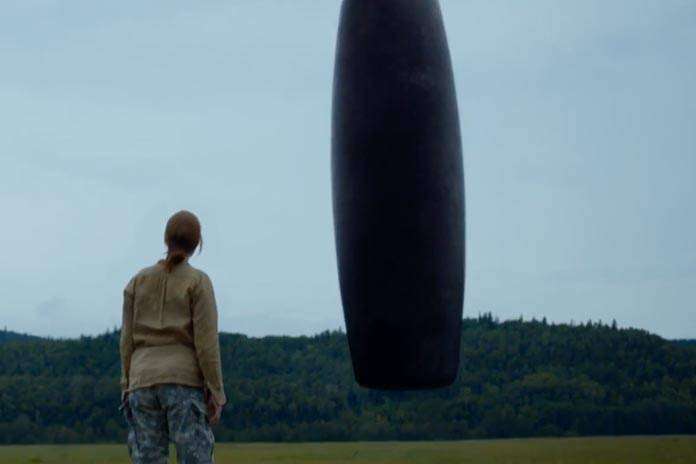Peter Suderman On This Year's Best Picture Nominees in The New York Times

The 2017 Academy Awards air tonight: La La Land, which picked up 14 nominations, is expected to win the big prize, although there's always a chance that one of the other Best Picture nominees could pull off an upset. It's not likely, but it's certainly possible, especially given the broad strength of the field. The nine films up for Best Picture represent the best crop of nominees in years, and Moonlight, Arrival, and Hell or High Water, in particular, are truly excellent films. You can't go wrong watching any of this year's Best Picture movies.
One thing that stands out about this year's crop, though, is the lack of sweeping epics: Sure, Arrival is a movie about a global alien invasion, but compared to most films in the category, it's modestly budgeted (the production budget was under $50 million) and relatively small in scope. The movie mostly about a pair of scientists trying to work out an alien language. The same goes for Mel Gibson's Hacksaw Ridge, a war film with an even smaller budget that is focused on a single act of battlefield heroism.
So is the era of the Oscar epic over? In today's New York Times, I look at how the Academy Awards has moved away from epics that attempt to capture the national character in a single sweeping film. Instead, this year's Best Picture nominees offer a variety of individual stories that, taken together, reflect the nation's identity — or, really, identities — as well as any single film. Indeed, I think the narrower and more personal focus, on specific individuals and cultural identities, is part of what makes this year's crop so excellent:
From the piece:
For years, the Academy Awards reliably recognized movies that attempted to capture the sweep of the American idea — in earnest films like "Forrest Gump" and "Saving Private Ryan" as well as more scorching efforts like "There Will Be Blood" — that seemed to want to define the country, and its people, all at once.
If you wanted a shot at a best-picture Oscar in that era, an ambitious statement film that tried to tell Americans who they really are was a good bet.
But in this decade, the Oscars have turned inward, eschewing ambitious epics and grand statements about the national character in favor of anxious self-reflection, bestowing the Academy's highest honors on films like "The Artist" and "Argo" that flattered Hollywood's self-image. True, in the aftermath of the financial crisis, a handful of movies tried to channel the country's mood ("The Wolf of Wall Street" and "American Hustle") or critique its historic self-conception ("12 Years a Slave"). But by and large, Hollywood went from examining the national character to examining its own.
This year's crop has some of that. A top contender, "La La Land," a technically proficient love letter to old Hollywood musicals, is set in Los Angeles, of course.
Yet the nine films nominated for the Academy's highest honor manage to present a vision not of the American identity, but of the variety of American identities — a collage of very different American lives that, taken together, provide as strong a sense of the American idea as any single movie ever has.
Read the whole thing here.


Show Comments (19)